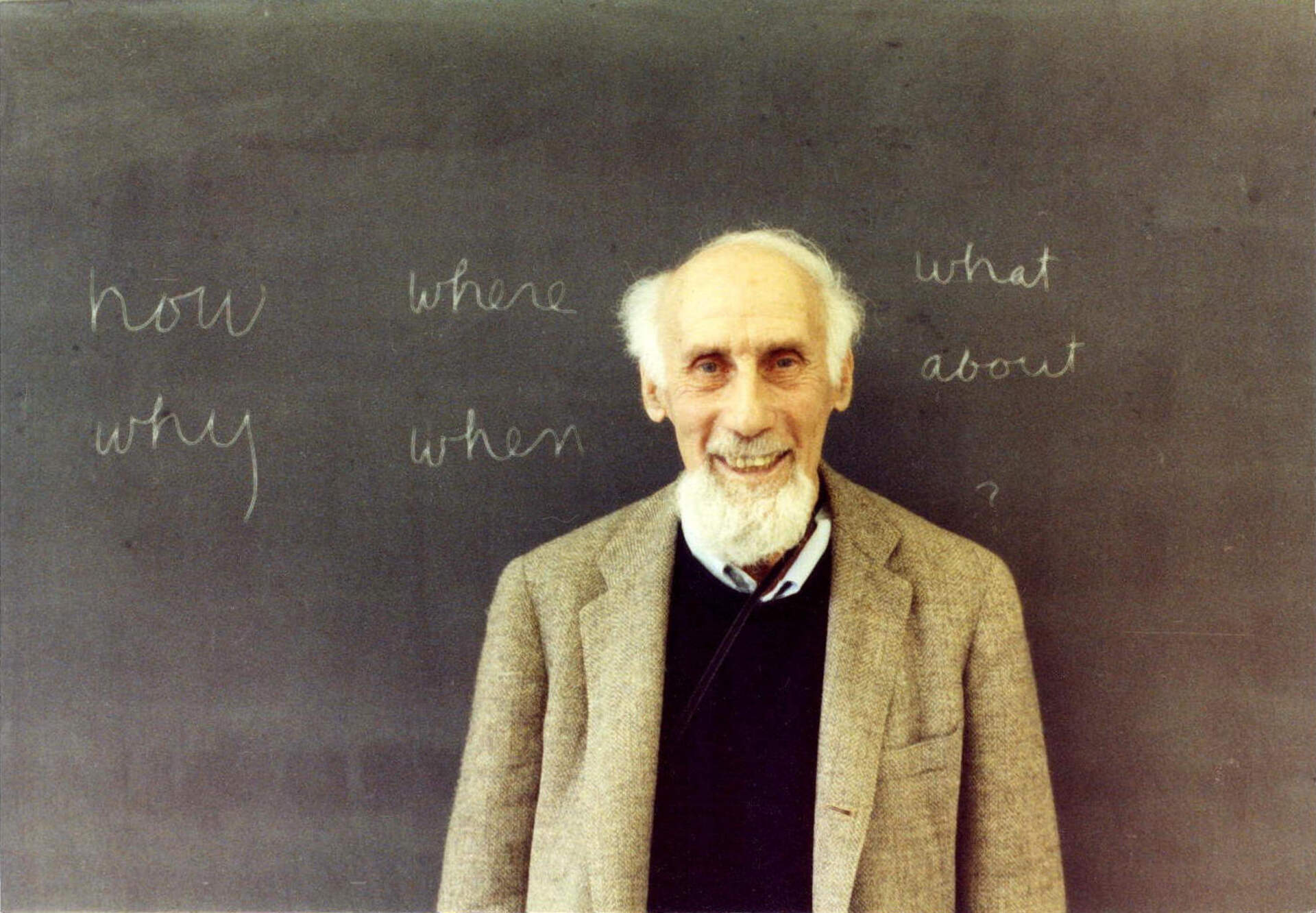Robert Lax
(1915-2000)
American
Born: Olean, New York, United States
Robert Lax was an American writer and poet who developed a unique style of abstract poetry. In the late he attended Columbia University in New York City; it was here that he met his longtime close friends: Ad Reinhardt, Ed Rice, and Thomas Merton.
After graduating in 1938, Lax began to work at The New Yorker where he acted as assistant poetry editor. Over the next few years, he was also poetry editor of Time magazine, wrote screenplays in Hollywood, and taught at both the University of North Carolina and Connecticut College for Women.
Following in the footsteps of Thomas Merton, Lax converted from Judaism to Catholicism in 1943. Lax saw no great disparity between these traditions, but embraced each of them in their turn. Thomas Merton wrote early on of his friend, “The secret of his constant solidity, I think, has always been a kind of natural instinctive spirituality, a kind of inborn direction to the living God.” It was at this point in his life that Lax had decided to lead a quiet and simple life where he wandered, working in circuses in Canada as a clown and expert juggler. Traveling with the Cristiani Brothers circus in 1949 enabled him to generate material for his collection The Circus of the Sun (1959). The New York Times hailed this publication as "perhaps the greatest English-language poem of this century." [1] Lax then found his way to writing material for various Catholic publications in the early-1950’s. Although Lax had published many poems in magazines and journals, it was not until he met the graphic artist Emil Antonucci in the 1950s that his publishing career began to truly take off. Antonucci began to publish materials by Lax in small press editions under the imprint of the Hand Press and later Journeyman Books. Following the popular release of The Circus, another milestone for Lax was the publication of New Poems (1962) which became somewhat of a manifesto of Lax’s simplified, pared-down poetic lines. Other important poems of this time were “Sea & Sky” (1965) and “Black & White” (1966), both appearing in Lugano Review.
By the 1960’s, Lax found his way to the Greek islands of Kalymnos and Patmos, seeking “to put himself in a place where grace could flow”, mostly abandoning his career in New York. However, Lax found himself at Artpark where he worked with Journeyman Press during the summers of 1974 and 1975.
Because of the visual nature of his poetry, Lax came to be published more and more in small press editions by graphic artists. In the 1970s he met the Swiss photographer Bernhard Moosbrugger. Moosbrugger founded Pendo Verlag in Zurich for the purpose of publishing Lax’s writing. These Pendo volumes were issued in English with a German translation on the facing page, opening Lax’s work up to a whole new audience.
A major retrospective of Lax materials was mounted at the Neue Staatsgalerie in Stuttgart in 1985. In 1987 Lax began an archive at St. Bonaventure University. In 1990 he became the University’s first Reginald A. Lenna Visiting Professor, and during a special convocation was awarded an honorary doctorate by the University. Lax next returned to the United States in the fall of 2000. He died on September 26 in his family home in Olean at the age of 84.
The bibliography of Lax’s published writings, and works based on his writings, runs well over 500 items, ranging from single poems to pamphlets and books, and includes graphic art, film, video, photography, and performance art. He was as well known in art circles as he was in literary ones, and perhaps at times better known in Europe than he was in America. His later U.S. publications include 33 Poems (New Directions 1988), Love Had a Compass (Grove 1996), A Thing That Is (Overlook 1997) and Circus Days & Nights (Overlook 2000).
Adapted from the Robert Lax Archive at St. Bonaventure University.
[1] https://www.plough.com/en/topics/justice/sustainable-living/bard-of-gods-circus
[2] https://www.college.columbia.edu/cct_archive/sep99/20a.html
[3] https://besharamagazine.org/arts-literature/robert-lax-a-life-slowly-lived/
